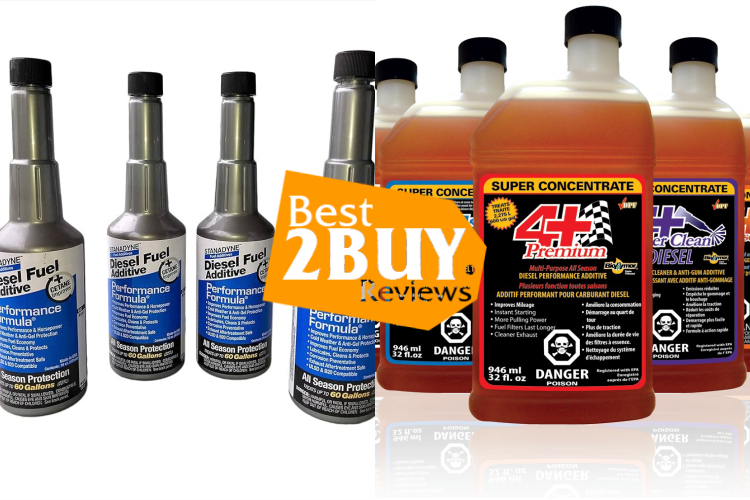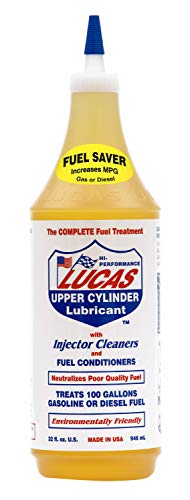How to Choose the Diesel Additives
Goodmorning my readers. I’m James Wilson from best2buy.reviews. Today, I will share you some information and give you some tips for choosing Diesel additives. Let’s check it now!
- 1. What are Diesel Additives?
- 2. Types of Diesel Additives
- 2.1. Cetane Boosters
- 2.2. Injector Cleaners
- 2.3. Anti-Gel Additives
- 2.4. Fuel Stabilizers
- 2.5. Lubricity Additives
- 2.6. Water Dispersants
- 2.7. Corrosion Inhibitors
- 2.8. Anti-Foaming Agents
- 2.9. Biocides
- 2.10. Emissions Reducers
- 2.11. Octane Boosters
- 2.12. Cold Flow Improvers
- 2.13. Oxidation Inhibitors
- 3. Purposes and benefits of Diesel Additives
- 3.1. Cetane Boosters:
- 3.2. Injector Cleaners:
- 3.3. Anti-Gel Additives:
- 3.4. Fuel Stabilizers:
- 3.5. Lubricity Additives:
- 3.6. Water Dispersants:
- 3.7. Corrosion Inhibitors:
- 3.8. Anti-Foaming Agents:
- 3.9. Biocides:
- 3.10. Emissions Reducers:
- 3.11. Octane Boosters:
- 3.12. Cold Flow Improvers:
- 3.13. Oxidation Inhibitors:
- 4. How to choose choose Diesel Additives?
- 4.1. Identify Your Needs:
- 4.2. Consult Your Engine Manufacturer:
- 4.3. Understand Fuel Quality:
- 4.4. Consider the Operating Environment:
- 4.5. Identify Regulatory Requirements:
- 4.6. Choose the Right Additive Types:
- 4.7. Research Brands and Products:
- 4.8. Read Product Labels and Descriptions:
- 4.9. Check User Reviews and Recommendations:
- 4.10. Perform Compatibility Tests:
- 4.11. Monitor and Evaluate Results:
- 4.12. Maintain a Regular Maintenance Schedule:
- 5. In conclusion
What are Diesel Additives?
Diesel additives are chemical substances or compounds that are added to diesel fuel to enhance its performance, improve fuel efficiency, reduce emissions, and protect the engine. There are various types of diesel additives available on the market, each designed to address specific issues or provide specific benefits.

Types of Diesel Additives
Some common types of diesel additives:
Cetane Boosters
Cetane boosters increase the cetane number of diesel fuel, improving the combustion quality. Higher cetane numbers result in smoother engine operation, better fuel efficiency, reduced noise, and lower emissions.
Injector Cleaners
These additives help keep fuel injectors and combustion chambers clean, preventing the buildup of deposits that can reduce fuel atomization, combustion efficiency, and increase emissions.
Anti-Gel Additives
In cold weather, diesel fuel can gel and clog fuel filters and lines. Anti-gel additives lower the gel point of diesel fuel, preventing these issues in freezing temperatures.
Fuel Stabilizers
Fuel stabilizers are used to prevent the formation of sludge, varnish, and other deposits in the fuel system. They are especially useful for stored diesel fuel, which can degrade over time.
Lubricity Additives
Ultra-low sulfur diesel (ULSD) has reduced natural lubricating properties, which can lead to increased wear in fuel system components. Lubricity additives are used to restore lubrication and protect the engine.
Water Dispersants
These additives help remove and disperse water that may be present in the fuel tank. Water in the fuel can lead to corrosion and microbial growth.
Corrosion Inhibitors
Corrosion inhibitors protect metal components in the fuel system, especially in the presence of biofuels or other corrosive agents.
Anti-Foaming Agents
Foaming in the fuel tank can reduce the efficiency of fueling operations. Anti-foaming agents help control foam formation.
Biocides
Diesel fuel is susceptible to microbial contamination, which can cause clogs and corrosion. Biocides are used to control the growth of microbes in the fuel.
Emissions Reducers
Some additives are formulated to reduce emissions of pollutants like nitrogen oxides (NOx) and particulate matter, promoting cleaner combustion and reducing environmental impact.
Octane Boosters
While diesel fuel doesn't have an octane rating, some diesel additives are designed to boost power and performance in diesel engines, similar to how octane boosters work for gasoline engines.
Cold Flow Improvers
These additives help lower the pour point and improve the low-temperature operability of diesel fuel by preventing wax crystals from forming in cold conditions.
Oxidation Inhibitors
Oxidation inhibitors help to slow down the oxidation process of diesel fuel, which can lead to the formation of varnish and deposits in the engine and fuel system.
Purposes and benefits of Diesel Additives
The primary purposes and their associated benefits:
Cetane Boosters:
- Purpose: Improve ignition quality.
- Benefits: Smoother engine operation, better fuel efficiency, reduced noise, lower emissions, and easier cold starts.
Injector Cleaners:
- Purpose: Maintain clean fuel injectors and combustion chambers.
- Benefits: Enhanced fuel atomization, improved combustion efficiency, reduced emissions, and extended injector life.
Anti-Gel Additives:
- Purpose: Prevent diesel fuel from gelling in cold temperatures.
- Benefits: Prevent fuel filter and line clogs, ensuring uninterrupted operation in frigid conditions.
Fuel Stabilizers:
- Purpose: Prevent the formation of sludge and deposits in stored diesel fuel.
- Benefits: Maintain fuel quality during storage, reduce engine performance issues when using stored fuel.
Lubricity Additives:
- Purpose: Restore lubrication to ULSD (Ultra-Low Sulfur Diesel) and protect fuel system components.
- Benefits: Reduce wear and extend the life of fuel system components.
Water Dispersants:
- Purpose: Remove and disperse water from the fuel.
- Benefits: Prevent corrosion, microbial growth, and fuel system damage caused by water contamination.
Corrosion Inhibitors:
- Purpose: Protect fuel system components from corrosion, especially in the presence of biofuels or corrosive agents.
- Benefits: Extend the lifespan of fuel system components, reduce maintenance costs.
Anti-Foaming Agents:
- Purpose: Control foam formation during fueling operations.
- Benefits: Ensure efficient and mess-free fueling, reduce the risk of spills and safety hazards.
Biocides:
- Purpose: Control microbial contamination in diesel fuel.
- Benefits: Prevent clogs, corrosion, and fuel quality degradation caused by microbial growth.
Emissions Reducers:
- Purpose: Reduce emissions of pollutants like NOx and particulate matter.
- Benefits: Promote cleaner combustion, reduce environmental impact, and help meet emissions regulations.
Octane Boosters:
- Purpose: Boost power and performance in diesel engines.
- Benefits: Improved engine performance and responsiveness.
Cold Flow Improvers:
- Purpose: Improve low-temperature operability of diesel fuel.
- Benefits: Prevent fuel waxing and ensure reliable engine operation in cold weather.
Oxidation Inhibitors:
- Purpose: Slow down the oxidation process of diesel fuel.
- Benefits: Prevent the formation of varnish and deposits in the engine and fuel system.
How to choose choose Diesel Additives?
Steps to help you choose the appropriate diesel additives:
Identify Your Needs:
Determine what issues or challenges you are trying to address. Common needs include improving fuel quality, enhancing engine performance, reducing emissions, or preventing issues related to cold weather or fuel storage.
Consult Your Engine Manufacturer:
Check the owner's manual or contact your engine manufacturer to understand their recommendations and any specific requirements or restrictions regarding additives. Using additives that are not compatible with your engine can cause problems.
Understand Fuel Quality:
Know the quality of the diesel fuel you are using. For instance, if you're using ULSD (Ultra-Low Sulfur Diesel), you may need additives to restore lubricity. If you're using biodiesel blends, you may need additives to address specific issues related to biofuels.
Consider the Operating Environment:
Assess the typical environmental conditions in which your engine operates. Factors like temperature, humidity, and the presence of water in the fuel can influence your choice of additives. For example, cold climates may require anti-gel additives, while wet conditions may necessitate water dispersants.
Identify Regulatory Requirements:
Be aware of any local or regional regulations related to emissions or fuel quality. Ensure that the additives you choose comply with these regulations.
Choose the Right Additive Types:
Select additives that match your identified needs. For example, if you need to improve combustion efficiency and reduce emissions, consider cetane boosters or emissions reducers. If you want to prevent gelling in cold weather, opt for anti-gel additives.
Research Brands and Products:
Research different brands and products that offer the specific types of additives you need. Look for well-established and reputable manufacturers that meet industry standards and regulations.
Read Product Labels and Descriptions:
Carefully read the product labels and descriptions to understand the intended use, recommended dosage, and any potential side effects or precautions. Some products are formulated for specific applications or conditions.
Check User Reviews and Recommendations:
Look for user reviews and recommendations from other diesel engine operators who may have similar needs and conditions. They can provide insights into the effectiveness of specific additives.
Perform Compatibility Tests:
Before using a new additive, consider conducting compatibility tests on a small scale to ensure that it doesn't cause adverse reactions with your fuel or engine components.
Monitor and Evaluate Results:
After using an additive, monitor your engine's performance and fuel efficiency. Evaluate whether the chosen additive effectively addresses your needs and provides the expected benefits.
Maintain a Regular Maintenance Schedule:
Continue to follow the recommended maintenance schedule for your engine, as using additives should complement regular maintenance practices, not replace them.
By following these steps and consulting with experts or your engine manufacturer, you can choose the right additives to maximize the performance and longevity of your diesel engine.
In conclusion
If you are finding Diesel Additives check out Amazon now. Amazon offers for you many products from various brand and wide price ranges. To help you easily to make final decision, I selected top tape flags in our website. Check carefully our reviews and recommendation.
If you need any further information, kindly comment below. I’m James Wilson, editor at best2buy.reviews. I’m very happy to answer your questions.











